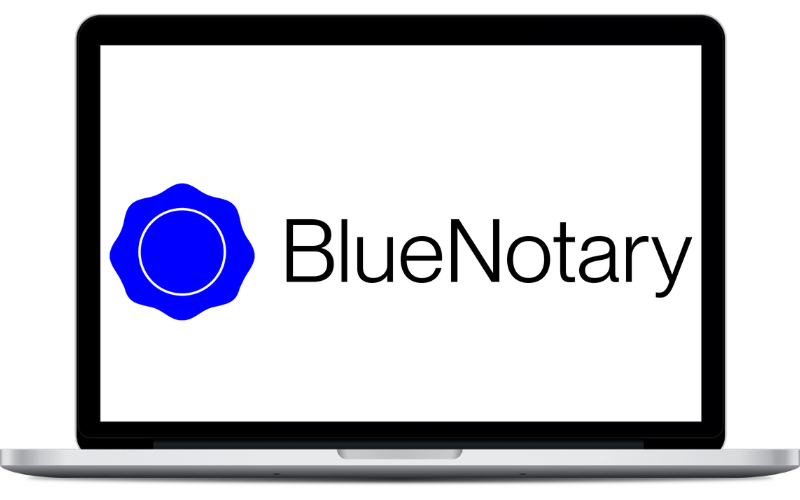Remote Online Notarization (RON)
Remote online notarization is the process of virtually notarizing closing documents using online technology tools. An e-notary is authorized by the state in which they reside to use audiovisual software, apps designed for e-signatures, and other software tools to complete the notarization process without the participants having to meet in person and use wet ink signatures.
RON Offers The Following Benefits:
✔ Broader access to notarial services
✔ Enhanced security
✔ Reduced risk of identity theft and fraud
With digital and remote work becoming the norm vs. the exception, and the rise of electronic signature technology, RON is increasing in popularity and consumer demand is increasing.
With RON, e-notaries, lenders, title and escrow companies, and real estate attorneys can help reduce the time it takes to deliver loan documents to their clients. Additionally, the error rate and the risk of funding issues are greatly reduced.
At Precision Signing Agency, we will continue to offer in-person remote closings while aligning ourselves with the top RON providers to expand our service offerings to our clients. We aim to be your “go-to” for all your closing needs – whether in person, IPEN, or for RON – Precision Signing Agency has you covered.
Many of our clients have questions about RON, its legality, the process, and how Precision Signing Agency can facilitate these transactions. Below, we will answer the following questions:
* What is the formal definition of remote online notarization (RON)?
* What are the requirements for performing RON?
* Which RON providers does Precision Signing Agency work with?
* What are the benefits of using RON?
* Which states have adopted RON or are in the process of adopting it?
Which States Have Adopted RON Or Are In The Process Of Adopting It?
While RON is recognized in many states across the country, it’s still a relatively new process with evolving laws and standards. Since only a few states have fully adopt RON, many in the industry question the validity across state lines. However, most states have statutes that recognize out-of-state notarial acts. As long as RON has been completed following all laws in the state in which the notary public is commissioned, the remote and digitally notarized document is legal, like traditionally notarized document—and should be recognized as such.
Additionally, in most states with RON legislation, it doesn’t matter where the signer is located, whether within the United States or internationally. However, the notary overseeing the transaction must be commissioned by a state with active legislation and comply with all applicable laws.
- States that have online notarization law.
- States that don't have an active online notarization law.
- Can perform online notarizations but not yet law.

What Is The Formal Definition Of Remote Online Notarization (RON)?
Remote online notarization is the process of virtually notarizing closing documents using online technology tools. An e-notary is authorized by the state in which they reside to use audiovisual software, apps designed for e-signatures, and other software tools to complete the notarization process without the participants having to meet in person to sign a paper document using wet ink. The notary public and the signer(s) can meet from wherever they are located, as long as their particular state laws permit them to do so.
What Are The Requirements For Performing RON?
The requirements for performing RON vary by state, but most legislation includes the following:
- Notary must receive formal e-notary training from their state
- Use of audio-visual communication technology (i.e. webcam-based)
- KBA – Knowledge-Based Authentication
- Use of electronic signatures and electronic seals
- Electronic journaling
- Data privacy requirements

Which RON Providers Does Precision Signing Agency Work With?
The RON provider or platform is typically dictated by the lender, however, sometimes a list of authorized vendors is provided. Precision Signing Agency has partnered with Blue Notary.

We are constantly expanding our network of e-notaries and the platforms we partner with. Please inquire if your preferred platform is not listed above.

What Are The Benefits Of Using RON?
Convenience and increased access: With RON, notaries and signers do not need to meet in person. RON makes notarization more accessible to people who lack adequate transportation, live in remote areas, have non-traditional work schedules, or have health issues that limit them from leaving home.
Fraud minimization: RON takes authentication even further than in-person notarization by using established identity proofing technologies, including:
Identity verification:
Signers present a government-issued ID to the camera on their device. The RON solution confirms the ID’s visual, physical and cryptographic security features.
Knowledge-based authentication (KBA):
In many states, signers must correctly answer several questions from their personal background, which are then verified from a third-party database.
Tamper-evident seal:
An automatically generated digital seal helps authorities determine whether a document notarized with RON was altered.
Audit Trail:
The electronic journal and AV recording indicate a completed notarial act.
More About RON
Are all electronic or remote notarizations RON?
IPEN and RIN
Not all electronic or remote notarizations classify as RON. The two most popular are:
In-person electronic notarization (IPEN):
IPEN was the first step toward remote notarization. Like RON, it involves electronic signature and notarization, however, it differs in that it doesn’t take place remotely; the notary has to be in the same location as the signer.
Remote ink-signed notarization (RIN):
While the notary and the signer do not have to be in the same location under RIN, the signer does have to sign a physical, paper document, which the notary observes via audio-visual technology. The signer then mails the document to the notary, who authorizes it and sends it back to the appropriate party.
Are there laws governing RON?
RON legislation is becoming increasingly common across the United States. In 2011, the Commonwealth of Virginia became the first to issue RON legislation. Since then, almost all states have passed RON legislation (or are in process), while the remaining few have permitted notaries to perform RON acts through executive orders or emergency authorization (during the COVID-19 pandemic)
The most recent legislative milestone concerning RON is known as the Revised Uniform Law on Notarial Acts of 2018 (RULONA). Published by the Uniform Law Commission (ULC), RULONA allows states to adopt and enable RON, and provides certainty around performing notarial acts, even when completed on an electronic record or if the signer is solely present via audio-visual technology.
We look forward to the opportunity to serve you and your clients with both in-person and RON transactions!
Note: Precision Signing Agency does not sell or share personal information with third parties for marketing/promotional purposes.
Back to top
COPYRIGHT © PRECISIONSIGNINGAGENCY | ALL RIGHTS RESERVED
Privacy Policy

















































